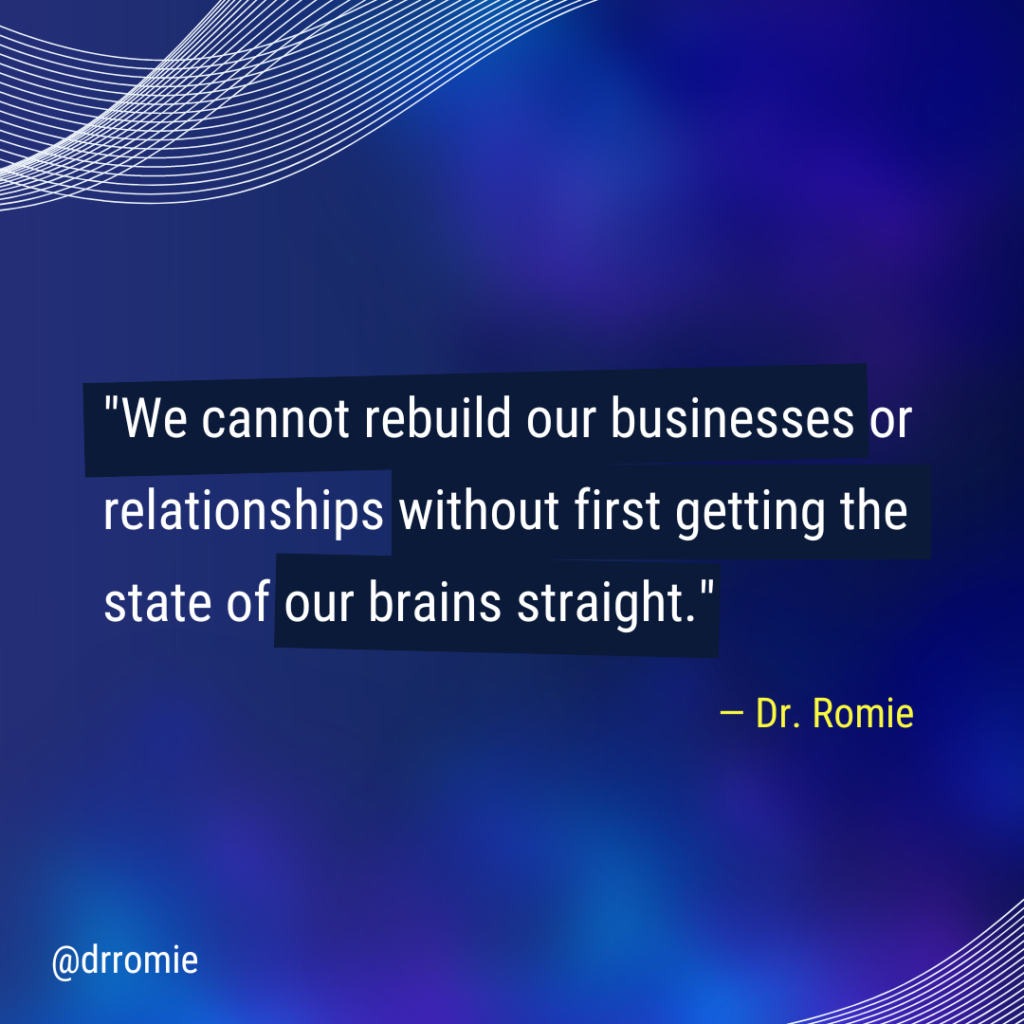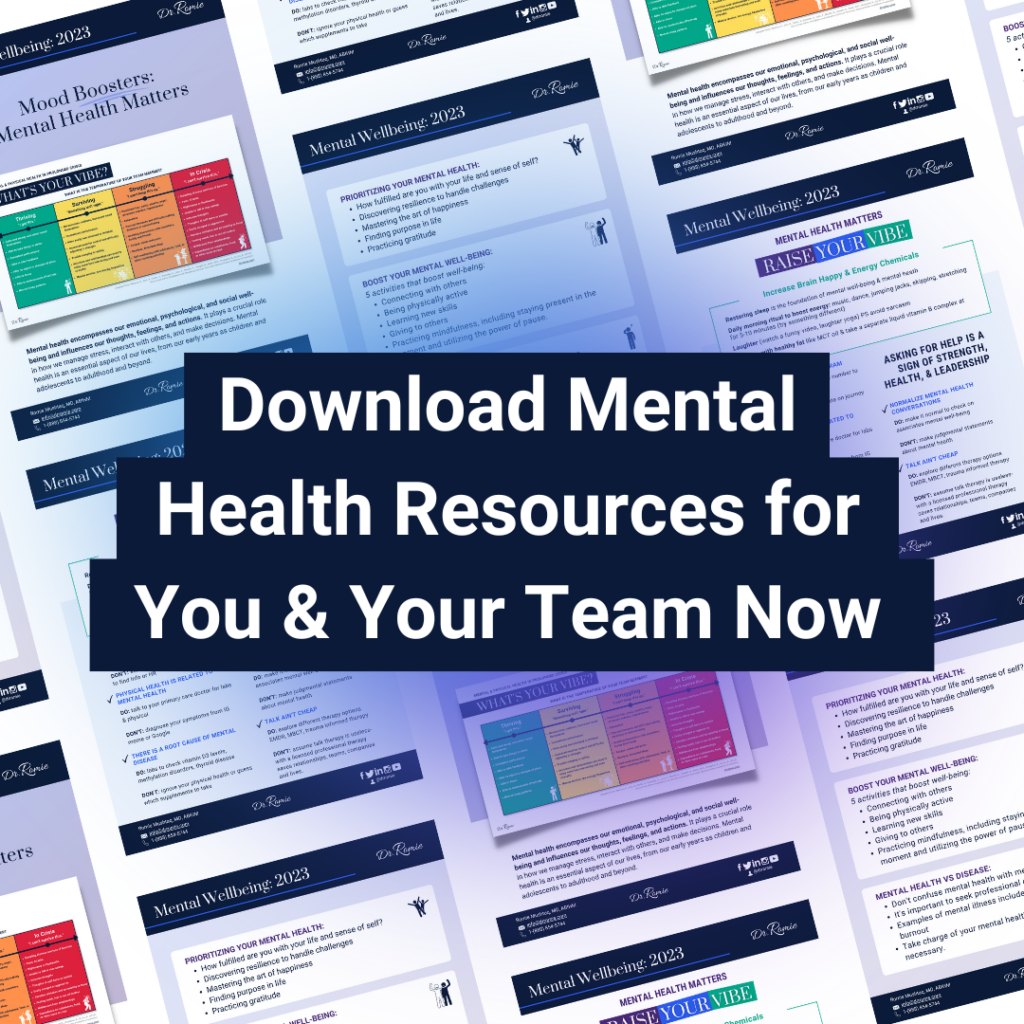In today’s fast-paced work environment, prioritizing mental health is crucial. But finding the time, space, and resources to do so can be a challenge.
With my background in neurology, integrative medicine, and mindfulness, I combine Western medicine and Eastern wisdom to help organizations create a culture of wellness. In this blog post, I’ll discuss some of the strategies I’ve used as Chief Wellness Officer at Evolution Hospitality to help leaders and teams prioritize mental wellness in the workplace.
The Widespread Impact of Mental Health in the Workplace
In my research, I have found that a staggering 82% of professionals experience high levels of stress, insomnia, or even burnout. These mental health issues significantly impact the workplace, reducing productivity and increasing turnover.
The truth is that businesses have much to gain by prioritizing the well-being of their employees.
Recognizing and Addressing Mental Health Issues
To address these mental health issues effectively, you must first be able to recognize the signs and symptoms of them in your team members. A very easy way to do this is by doing a daily “temperature check” to identify if team members are thriving, surviving, or hanging by a friend.
Similar to the triage system used in healthcare, this tool will help you identify the team members that need a bit of grace or additional mental health support.
Leaders Must Prioritize Their Own Wellness
Improving mental health in the workplace isn’t just about helping team members—it’s also about maintaining our wellness as leaders. As a leader, your well-being has a far greater impact than you may realize. When you overlook the importance of your own mental well-being, your team will suffer. It’s like trying to pour from an empty cup — there won’t be anything left to give.

There are ways to care for your health, while also improving the well-being of your team. Some of my favorites suggestions include:
- Connect with others. Try facilitating team-building events that encourage interaction and foster relationships such as team lunches. I realize this is difficult for virtual teams, but I do encourage at least one in-person meeting per quarter whenever possible.
- Get moving. Take your meetings to the streets by engaging in walking discussions. Can you replace a video call with a phone call and combine it with a walk around the block?
- Created habits of generosity. Provide initiatives that allow team members to engage in volunteering, charity events, community service projects, or donation drives.
Respond Compassionately to Team Members’ Mental Health Concerns
Take a moment and imagine this scenario: One of your team members approaches you, asking for a few minutes of your time to speak confidentially. They reveal that they’re suffering from anxiety which has worsened due to a family member’s illness.
How would you react? Is your first instinct to protect the work you have in progress? Or would you hastily direct that person to HR for the help and resources they need?
Your response matters. Your response could save a life.
First, take a minute to pause, recenter yourself and listen – with your heart wide open – even if you feel uncomfortable.
Ready to learn more? Download this guide to identify common pitfalls that are made when it comes to managing mental health and wellness in the workplace.
Cultivate a Culture of Wellness
My brainSHIFT programs provide you with actionable strategies to manage stress, improve mental health, heal burnout, and optimize performance. As a workplace wellness speaker, I help organizations create a Culture of Wellness through engaging workshops and keynote events.
The impact of mental health on the workplace cannot be overstated. We must remain proactive in identifying mental distress signs and cultivating an environment that promotes wellness. Implement these practices in your workplace and see the positive change unfold.
As a practical guide to implementing these insights, I have developed a downloadable resource for you and your team.
Interested in learning more about my #brainSHIFT programs? Contact me to learn more about my engaging keynotes and workshops, each designed to help you build a Culture of Wellness that will foster healthier, happier, and more productive teams.

